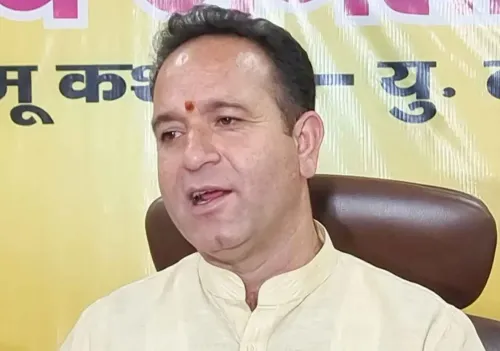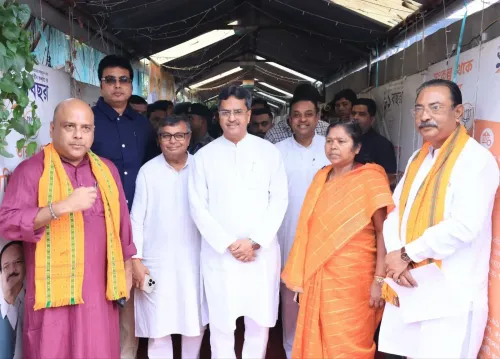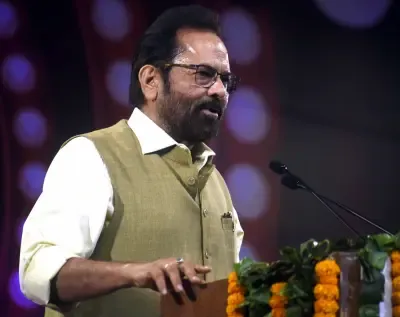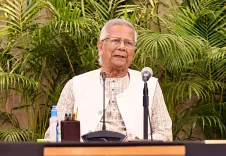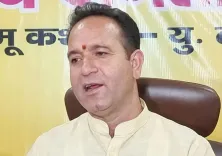Supreme Court Strengthens Fundamental Rights in the Constitution: Justice Aravind Kumar at Fali S. Nariman Memorial Lecture
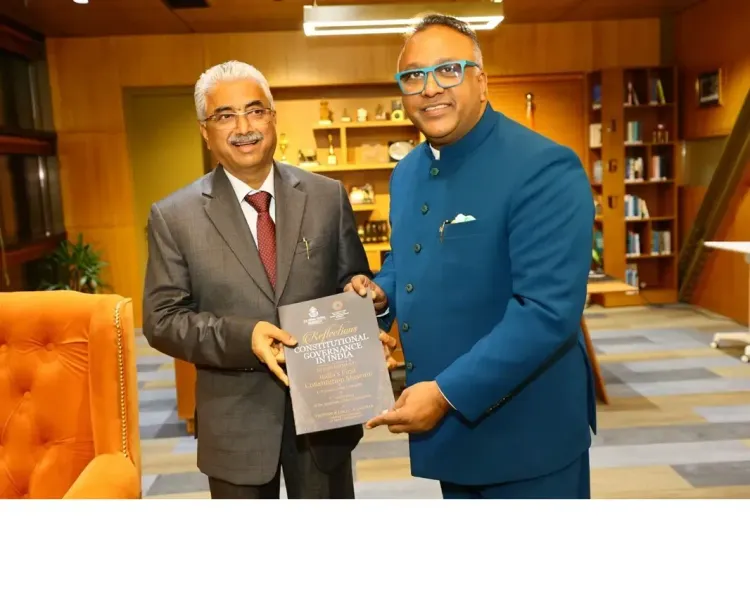
Synopsis
Key Takeaways
- The Supreme Court enhances fundamental rights.
- Judicial interpretation of rights extends to socio-economic justice.
- Fali S. Nariman's legacy influences the legal fraternity.
- Human rights and public policy must align for citizen empowerment.
- The Right to Life encompasses dignity, a healthy environment, and education.
Sonipat, Feb 7 (NationPress) Justice Aravind Kumar of the Supreme Court delivered the Fali S. Nariman Memorial Lecture at O.P. Jindal Global University, stating that the apex court plays a crucial role in enhancing fundamental rights.
"The Supreme Court of India bolsters the fundamental rights enshrined in the Constitution. The judiciary aims to secure socio-economic justice and rights through comprehensive welfare policies and developmental strategies, enabling states to achieve the minimum core in all aspects. The court is obligated to ensure constitutional protection for the weaker sections of society based on socio-economic criteria."
Reflecting on the legacy of the esteemed late legal figure Fali S. Nariman, Justice Aravind Kumar remarked: "Fali Nariman was more than a legal expert; he was the conscience keeper of the legal community, possessing unmatched brilliance and eloquence that could sway even the hardest hearts, demonstrating a steadfast commitment to justice. He embodied the ideals of our Constitution that promote fairness, courage, and an unwavering belief in the individual, shaping numerous landmark judgments. His contributions to human rights and justice are significant. His dedication to human rights extended beyond the courtroom. As a nominated member of the Rajya Sabha, he highlighted in the discussion on the Right to Education, 'A society that denies its children the light of education dims the future of its democracy.' His writings and speeches consistently emphasized that constitutional morality should direct public policy."
Justice Aravind Kumar’s lecture, titled "75 Years of the Indian Constitution and the Supreme Court of India: The Role of Human Rights & Public Policy for Empowering Citizens," featured an extensive discussion on rights, duties, and the Supreme Court's role in safeguarding the Constitution of India.
"As we commemorate 75 years of the Indian Constitution and the establishment of the Supreme Court, we must contemplate the transformative vision inherent in these institutions. Fali Nariman often stated that the Constitution is not just a document; it is the soul of our democracy. He had faith in its promise to uphold dignity for all."
"Central to this journey is the relationship between human rights and public policy. The true gauge of a government lies in its capacity to convert constitutional principles into public policy that elevates every citizen. The framers of the Constitution exhibited remarkable foresight when they incorporated the Right to Equality before the law from the Directive Principles of State Policy into fundamental rights. It is essential to examine how the Supreme Court has enforced these human rights, proactively enhancing their implementation and ensuring their efficacy. There have been significant advancements in broadening the interpretation of certain provisions to encompass the fundamental tenets of the Right to Life."
"The Supreme Court of India has interpreted the Right to Life as encompassing not only the right to mere existence but also the right to utilize every limb or faculty that facilitates a fulfilling life, including the right to live with basic human dignity. Furthermore, the Supreme Court has expanded the definition of the Right to Life to include the right to a Clean and Healthy Environment, without which life would be nearly impossible. It has also recognized the Right to Life as encompassing the rights to food, shelter, and education, aligning with the interpretation provided by the United Nations Human Rights Committee under Article Six of the International Covenant on Civil and Political Rights. Although the role of courts may be limited in the realm of socio-economic rights, public interest litigation and the jurisprudence developed by the Supreme Court illustrate what a court can achieve in interpreting fundamental rights," he noted.
In his Welcome Address, O.P. Jindal Global University's Founding Vice Chancellor, Professor (Dr) C. Raj Kumar stated: "We are honoring the legacy of undoubtedly India's greatest jurist, Fali S. Nariman. He remains India's premier lawyer, arbitrator, and parliamentarian. Nariman wore many hats, yet he consistently adhered to the principle of speaking truth to power. He was the moral compass of the legal profession and the law itself. We are privileged that the memorial lecture is being presented by the distinguished Supreme Court judge, Hon’ble Justice Aravind Kumar."
Executive Dean of Jindal Global Law School, Professor (Dr) S.G. Sreejith, emphasized the contributions of Fali S. Nariman and expressed his honor in organizing the annual lecture in his remembrance.


